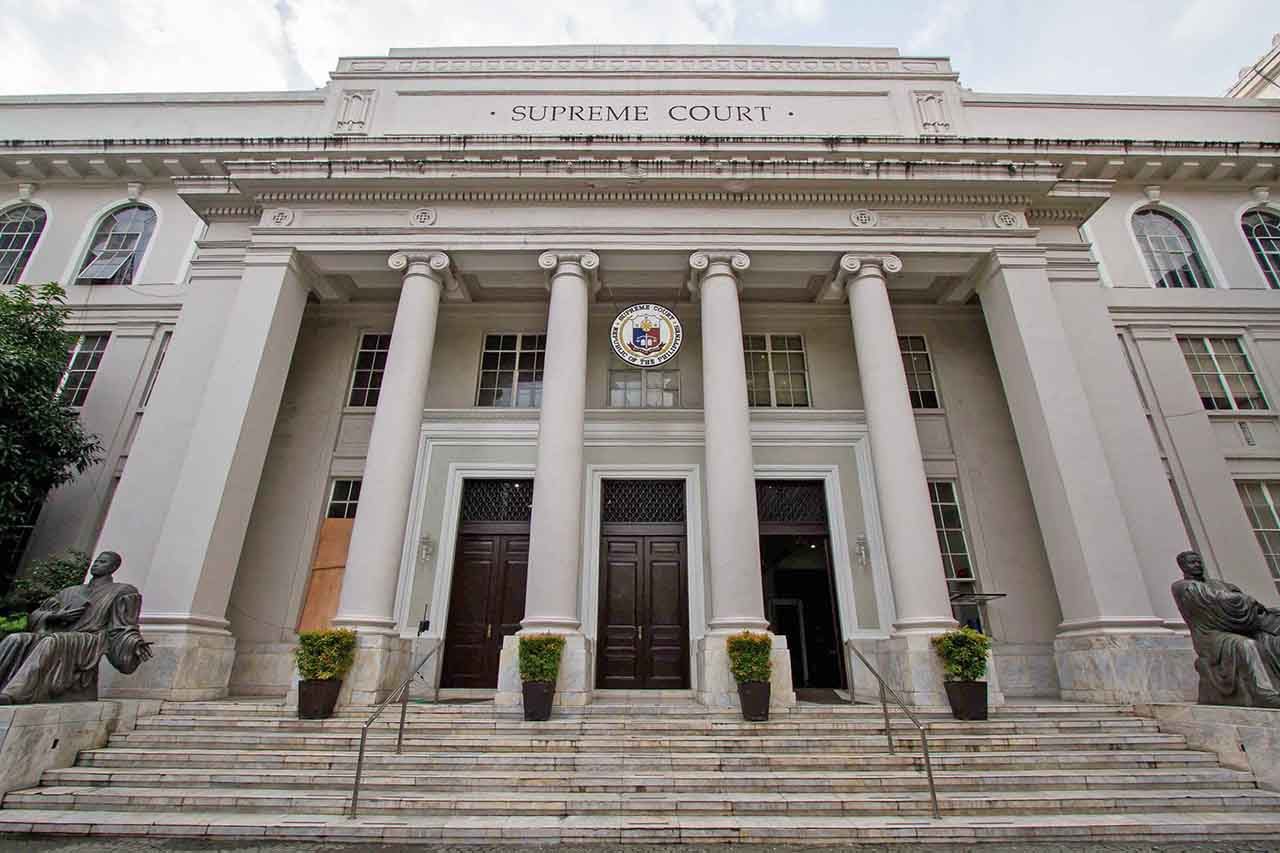SUMMARY
This is AI generated summarization, which may have errors. For context, always refer to the full article.

MANILA, Philippines – Fourteen justices of the Supreme Court (SC) are expected to vote on Tuesday, November 8, on the petition opposing a hero’s burial for the late dictator Ferdinand Marcos.
Of the 15 SC magistrates, one has inhibited himself from the case: Associate Justice Bienvenido Reyes.
With Reyes’ inhibition from the case, at least 8 votes will be needed to block the burial at the Heroes’ Cemetery, while a tie would mean the state burial can proceed as planned.
According to the internal rules of the Supreme Court, certain conditions must be met before a magistrate can recuse or inhibit himself from participating in the resolution of a case.
Rule 8 of the court’s rules says members of the High Tribunal should inhibit themselves in the following cases:
- If the justice was the ponente of the decision or had participated in the proceedings in the appellate or trial court.
- If the justice was counsel, partner or member of the law firm that is or was the counsel in the case. The exception is if he was no longer a member of the law firm when it was engaged in the case, and the SC member voted against the client of the firm. The mandatory inhibition from the case will not apply after the lapse of 10 years from resignation from the law firm, unless the justice personally handled the case.
- If the justice or his spouse, parent, or child has a pecuniary interest in the case.
- If the justice is related to either party in the case within the 6th degree of consanguinity or affinity, or to any member of a law firm who is counsel of record in the case within the 4th degree of consanguinity or affinity.
- If the justice was executor, administrator, guardian or trustee in the case.
- If the justice was an official, or is the spouse of an official or former official of a government agency or private entity that is a party to the case, and the justice or his or her spouse has acted on any matter relating to the case.
Aside from these cases, the SC’s internal rules also state that a justice may inhibit himself or herself “for a just or valid reason,” in the exercise of his or her “sound discretion.”
Inhibiting members must state the reason for their inhibition.
Reyes’ ties
In Reyes’ case, he recused himself from the Marcos burial case due to his “close ties” with one of the parties. But a GMA News report said Reyes did not specify which party he had close ties with.
While Reyes recused from the case end-August, he has not yet elaborated on the specifics of his reasons for inhibition.
Reyes administered the oath of President Rodrigo Duterte back in June. The two also belong to the Lex Talionis fraternity in San Beda College, where they studied law.
Reyes, who was former Court of Appeals justice, was appointed to the SC in 2011 by former president Benigno Aquino III. Reyes had previously engaged in private practice and served as finance manager of Best Security Agency set up by Benigno Aquino III when his mother Corazon Aquino was president.
The SC’s expected decision on the Marcos burial case on Tuesday comes after the High Tribunal twice extended the status quo ante order it issued last August 23, which stopped the burial until September 13. The SC extended its order, postponing decision on the burial first until October 18, and again until November 8.
Duterte had earlier ordered preparations for Marcos’ burial at the heroes’ cemetery to fulfill a campaign promise he had made to the Marcos family and Ilocanos.
He also maintained that laws and military guidelines allow the burial of the late dictator at the cemetery. (READ: Marcos ‘qualified’ for hero’s burial based on AFP rules)
But petitioners, including Martial Law victims, filed a petition before the SC to stop the burial, arguing that Marcos was not a hero due to state-sanctioned atrocities and human rights violations committed under his strongman rule.
The National Historical Commission of the Philippines had also opposed the move, citing Marcos’ fraudulent war record. – Rappler.com
Add a comment
How does this make you feel?
There are no comments yet. Add your comment to start the conversation.